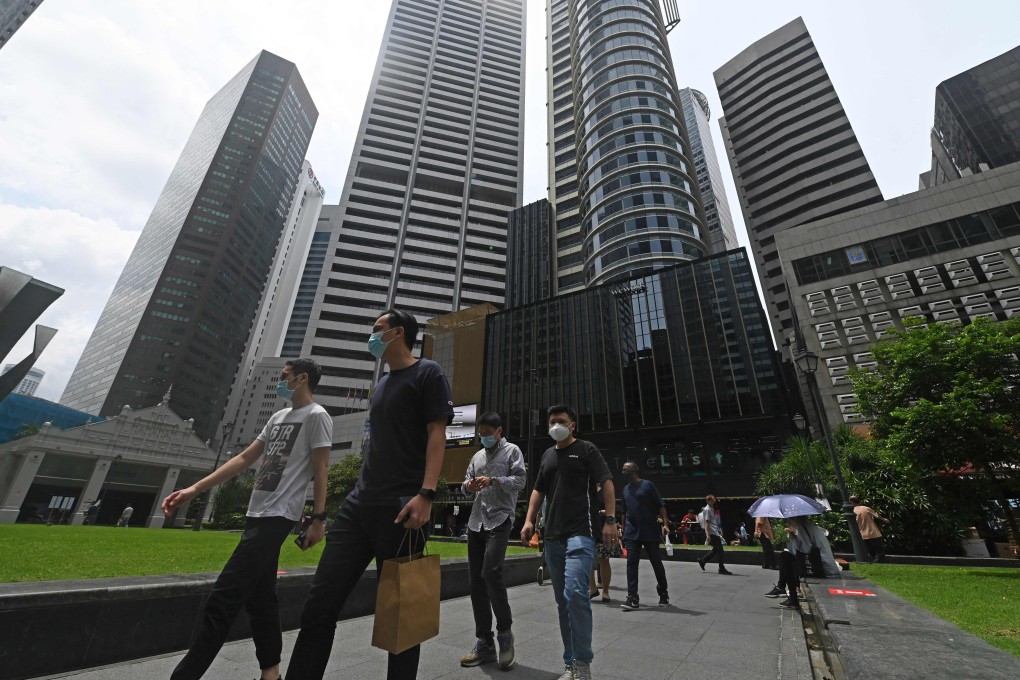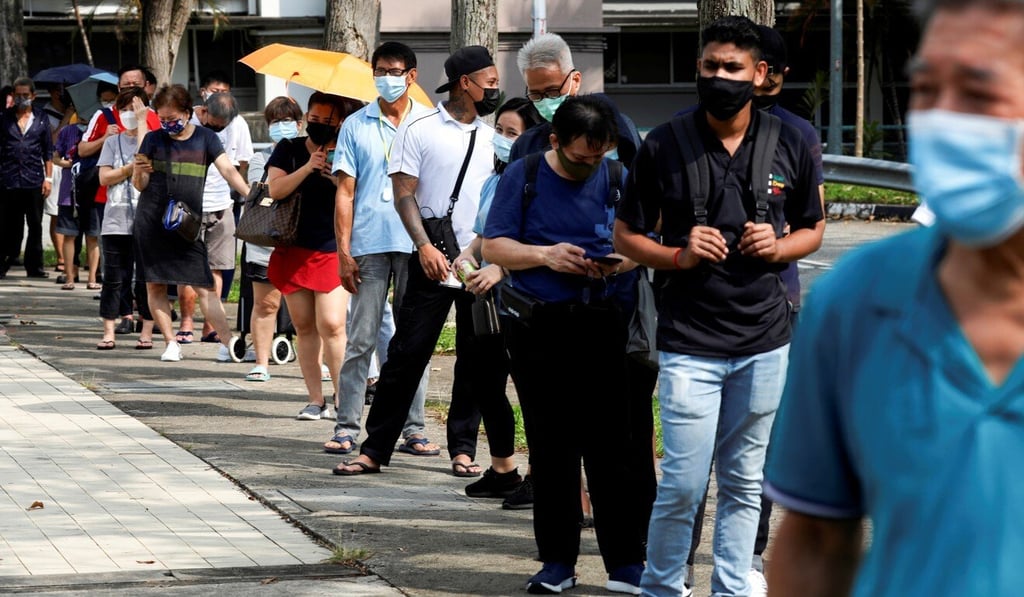Advertisement
Coronavirus: Singapore to restrict workplace access for unvaccinated employees
- From January, unvaccinated employees who haven’t had Covid-19 in the past 270 days must undergo testing to access the workplace
- The rules represent some of the most forceful on vaccinations in Asia, and come ahead of US plans for a similar ‘get vaccinated or get tested’ mandate
Reading Time:2 minutes
Why you can trust SCMP
5

Kok Xinghuiin Singapore
Singapore will require all workers to be vaccinated against Covid-19 or get tested regularly to enter the workplace starting next year, officials said on Saturday as they cited the risk posed by unvaccinated residents despite the country’s high inoculation rate.
From January 1, employees who have not been vaccinated must undergo an antigen rapid test administered by a health ministry-approved provider every day they need to access the workplace, as negative results are only valid for 24 hours.
Those who have recovered from Covid-19 within the past 270 days will be exempt from daily testing.
Advertisement

Similar rules covering the public, health care and food and beverage sectors were rolled out by the city state from October 1.
Advertisement
Put together, the measures represent some of the most forceful on Covid-19 vaccinations in Asia, and come ahead of the United States’ plans for a similar “get vaccinated or get tested” mandate for the private sector.
Advertisement
Select Voice
Choose your listening speed
Get through articles 2x faster
1.25x
250 WPM
Slow
Average
Fast
1.25x